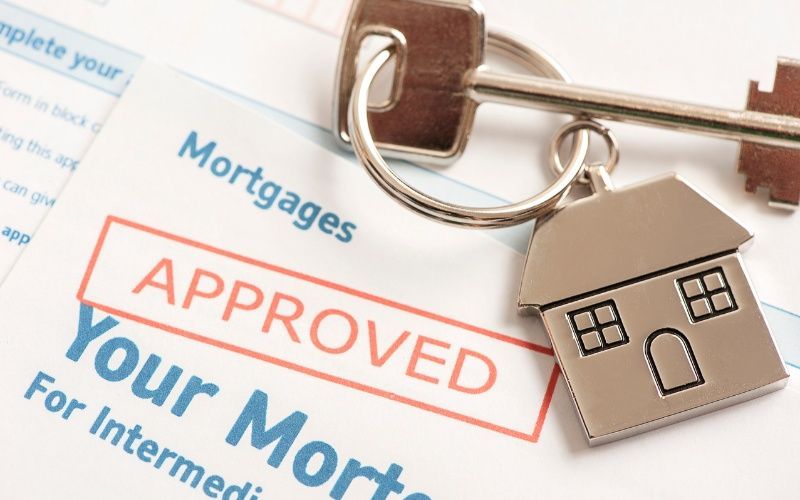The Freelancer's Path to Homeownership

Getting approved for a mortgage is often more difficult when you are self-employed or freelance compared to traditional full-time employees. Mortgage lenders tend to perceive self-employed borrowers as higher risk due to having less predictable income streams and a lack of regular paychecks.
However, with proper preparation and finding the right loan programs, it is certainly possible for small businesses, freelancers, contractors, and entrepreneurs to qualify for a home loan. This comprehensive guide provides tips and strategies specifically tailored for self-employed and freelance mortgage applicants to improve their chances of getting approved.
We will discuss the key challenges those with self-employment income face when applying for a mortgage, proven steps that can be taken to strengthen your application, different types of mortgage loans available to non-W2 borrowers, how to get approved for a mortgage on your own without needing a co-signer, and provide answers to frequently asked questions about qualifying for a home loan when self-employed.
The goal is to educate on what lenders look for from self-employed, freelancers, homeowners, and job applicants while also offering actionable recommendations to overcome income verification hurdles. By understanding lender requirements and taking proactive measures early when preparing your mortgage application, self-employed professionals, freelancers, and freelance workers can successfully finance the home they want despite perceived income instability. Let's explore the path to homeownership for independent workers, freelancers, and non-traditional borrowers.
Challenges for Self-Employed Mortgage Applicants
Here are some of the key challenges of Freelance borrowers face:
Unpredictable income
When you are self-employed, your income often fluctuates month-to-month depending on the flow of projects, multiple clients, tasks per project, and clients. Mortgage lenders prefer to see a stable, predictable income when evaluating borrowers. Large variations in income from month to month or year to year can raise concerns about your ability to repay the mortgage.
Harder to verify income
As a W-2 employee, you simply provide your W-2s and recent pay stubs to document your income. However, self-employed borrowers rely on a variety of income sources that can be harder to verify, such as freelance jobs, writing contracts for freelancers, client payments, taxes, business profits and losses, and income from side projects and investments. Satisfying a lender's documentation requirements takes more effort.
Lower taxable income
Many self-employed borrowers use business deductions and expenses to reduce their taxable income. However, lenders look at your gross pre-tax income, rather than net taxable income, especially when calculating debt-to-income ratios. Lower income due to tax write-offs can negatively impact and determine how they decide how much you can borrow.
Perceived instability
Lenders may view self-employed borrowers as more likely to default because of the perception that freelancing income is unstable. You may need to provide more documentation to prove your income sustainability. Having large cash reserves is also important.
Higher chance of rejection
For self-employed individuals, navigating the mortgage application landscape can be intricate. It's often beneficial to explore multiple lenders to boost approval chances.
The key is being prepared with extensive documentation of your business expenses, income sources, tax returns, and business finances. Having a strong credit score, low debt-to-income ratio, and sizable down payment will also help offset any concerns related to self-employed income volatility.
Tips for Getting Approved for a Self-Employed Mortgage
Despite the challenges, it is certainly possible for self-employed and freelance workers to get approved for a mortgage.
Here are some top tips to improve your chances:
Have at least 2 years of self-employment history
Most lenders want to see you have been a self-employed individual re-employed for a minimum of 2 years in the same line of work. This demonstrates you have the ability to sustain your income over time.
Optimize debt-to-income ratio
Lenders will calculate your DTI based on your gross income and monthly debts. Increasing your income or lowering debts can improve your ratio. Aim for a DTI below 43%.
Maximize your credit score
Having an excellent credit score of 740 or higher will qualify you for the best mortgage rates and offset concerns about income. If you're considering options like paying your mortgage with a credit card, it's essential to understand the implications. Learn more about using a credit card for your mortgage.
Make a larger down payment of 20-25%
Putting down more upfront shows you are financially committed to the home. It also means borrowing less, making approval easier.
Have significant cash reserves
Lenders want to see you have at least 6 months of living expenses saved as a financial cushion in case of dips in your freelance or self-employment income.
Pay off consumer debts
Eliminate monthly debts like credit cards and auto loans to maximize cash flow available for the mortgage payment. If you're considering consolidating or managing these debts, understanding when to take out a personal loan can be beneficial.
Provide extensive income documentation
Be prepared with 2-3 years of tax returns, 1099s, bank statements, and profit/loss statements from your business.
Taking these proactive steps will demonstrate to lenders and employers that you are financially stable and responsible, making them more confident in approving your self-employed mortgage application.
Types of Mortgages for Self-Employed Borrowers
If you earn your income as a freelancer or if you're self-employed, it's important to know that you're not limited to just the standard loans. There are various mortgage options to choose from. Learn about the different types of mortgages and find the best fit for your needs.
In the world of mortgages, there are several different options specifically designed for people like you. These options take into account the unique way you earn and manage your money, ensuring that you have a broader range of choices to find the perfect mortgage fit for your needs.
Here are the several mortgage options to consider:
Conventional mortgages
These standard mortgages are not guaranteed by the government and typically have higher interest rates and stricter eligibility standards. However, you may still qualify with a strong application.
FHA loans
Insured by the Federal Housing Administration, FHA loans offer more flexible credit requirements and only require a 3.5% down payment. This makes them easier to qualify for.
Bank statement loans
These allow you to use 12-24 months of bank statements to verify income rather than tax returns. Requirements vary by lender.
Joint mortgage
Applying with a co-borrower who is a W-2 employee can improve your chances since their income helps. Both borrowers must qualify.
Mortgage with co-signer
A co-signer with good credit essentially guarantees the mortgage on your behalf if you are unable to make payments.
Portfolio loans
Offered by community banks, these loans are held in the bank's own portfolio instead of being sold to investors. This provides more flexibility.
Alternative document loans
These verify income using 12-24 months of bank and tax statements rather than tax returns. Requirements vary.
Shopping around with different lenders and mortgage brokers will help you find the right loan program to fit your unique situation as a self-employed borrower.
Strategies to Get Approved on Your Own
While getting a co-signer or joint mortgage can improve your chances, you may want to get approved on your own.
Here are some tips:
Start small
Buy a less expensive property first to establish that you can handle mortgage payments. Lenders may approve you for a lower loan amount initially.
Build up your down payment
Saving for a down payment of 30% or more can offset concerns about unstable self-employment income for many lenders.
Stick to one line of work
Having many different side jobs may come across as disorganized. Focus on a single expertise area.
Get strong professional references
Having successful and respected clients vouch for the reliability of your freelancing business goes a long way.
Keep meticulous financial records
Maintain organized tax documents, bank statements, invoices, and profit/loss statements to satisfy lender requirements.
Incorporate your business
Forming an LLC or S-Corp lends more credibility than being a sole proprietor.
Show consistent income
Maintain consistent income levels from year to year as reflected in your tax returns and financial statements.
With the right preparations and loan program, you can absolutely qualify for a mortgage on your own without needing a co-borrower. But get help from a mortgage professional experienced with self-employed borrowers.
FAQs
Conclusion
Getting approved for a mortgage as a self-employed, independent contractor or freelance borrower can be challenging, but definitely achievable with the right skills, preparation, and persistence. For first-timers, homebuyer assistance programs can offer added support.
The keys are showing you have a stable income history, good money management skills, strong business finances, an excellent credit profile, and ample savings and reserves. While you may face more cost and more scrutiny, taking proactive and creative steps to improve your mortgage eligibility will pay off with the ability to buy the home you want.
Be ready to provide extensive documentation of your income sources, your income tax, returns, and business details. Shop around for lenders familiar with self-employed borrowers, and work with a mortgage broker who can help you find the optimal loan program.
If you are struggling with overwhelming student loan debt and want to explore relief options, Pacific Debt Relief offers a free consultation to assess your financial situation. Our debt relief specialists can provide objective guidance to help find the right student loan debt solution.
Reduce Your Credit Card Debt By Up to Half

BBB Reviews | 4.9/5.0 Rating









 Do Not Sell My Personal Information
Do Not Sell My Personal Information